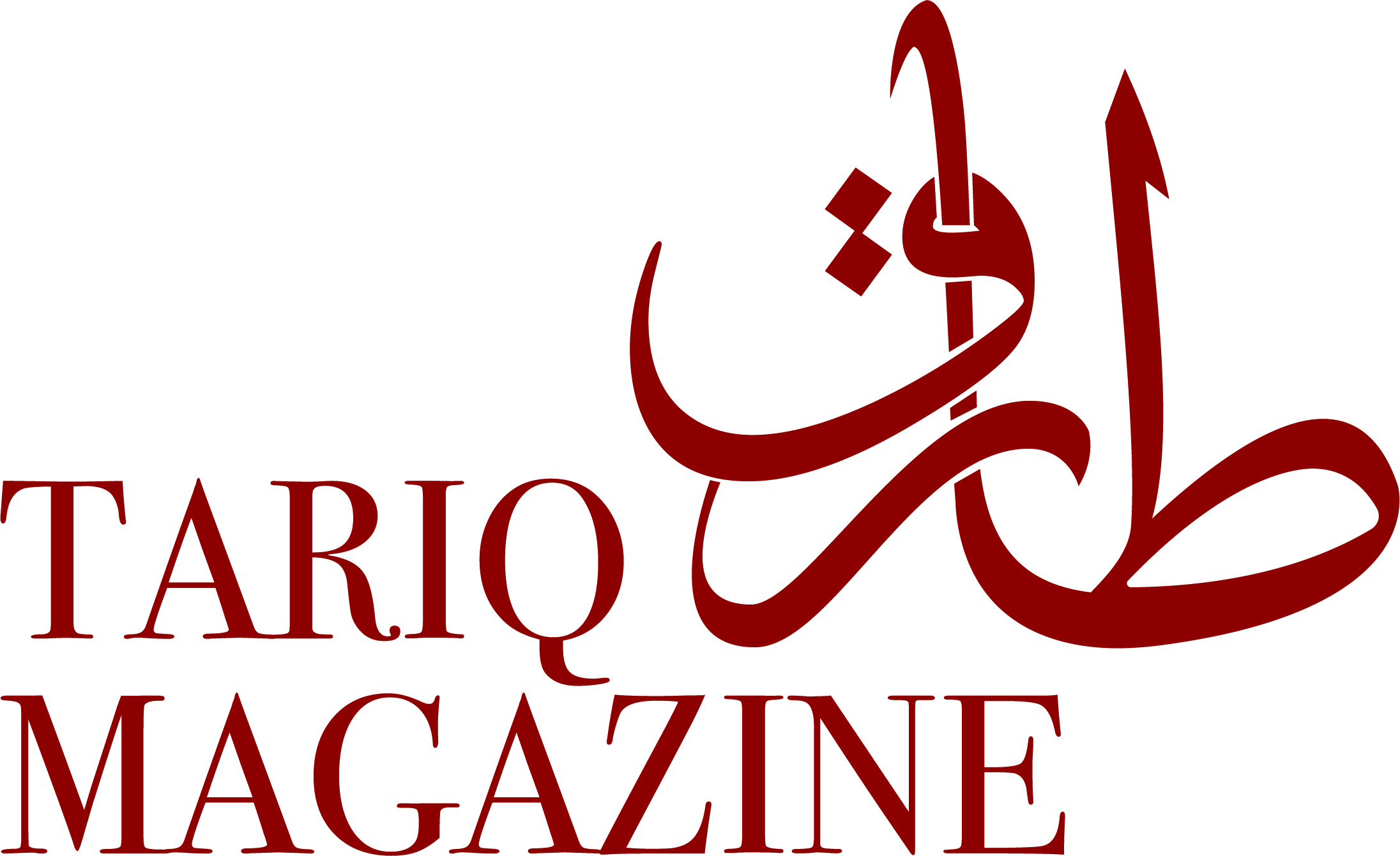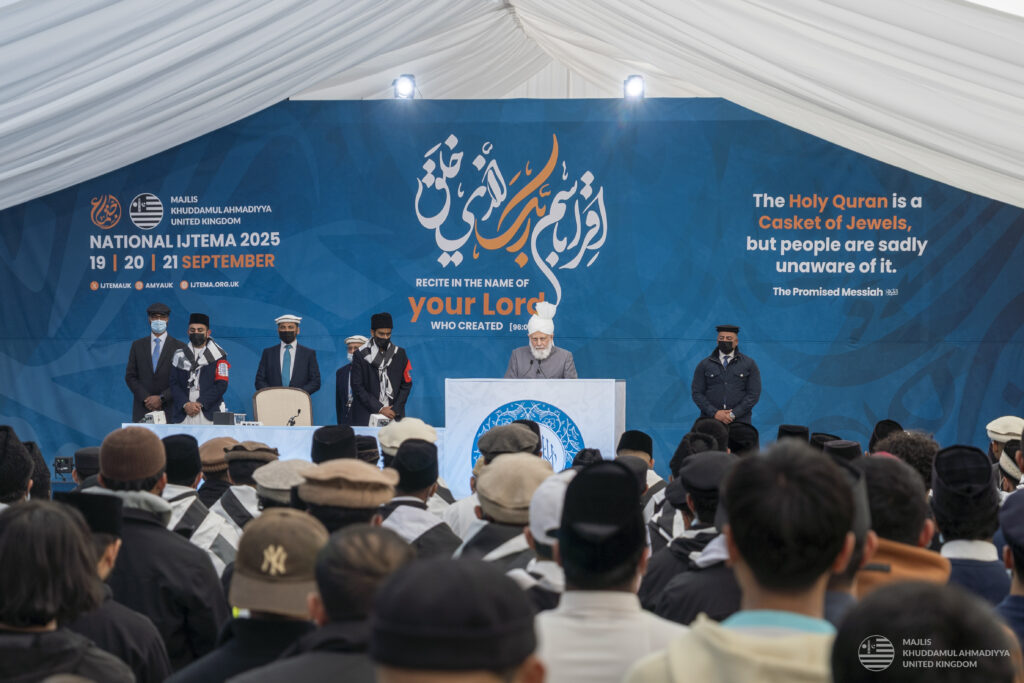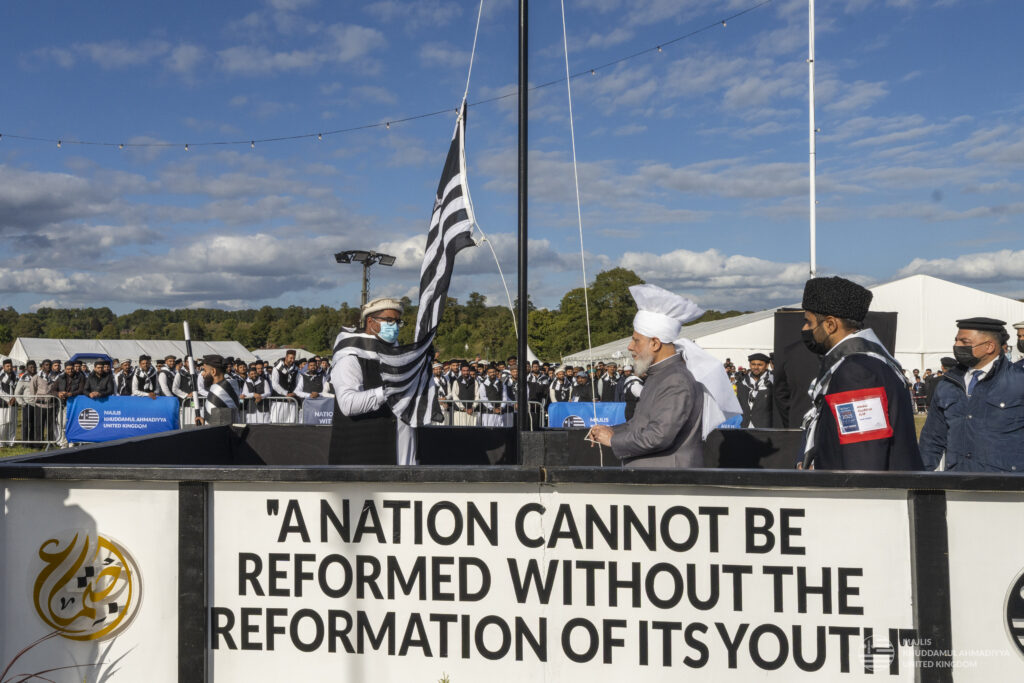Khilafat
The Contribution of Khilafat-e-Ahmadiyya to Muslim Science
Exploring the various ways in which the Khulafa-e-Ahmadiyyat have contributed to science

The resplendent glory of Islam shone forth from the Arabian peninsula in the 6th century to fundamentally alter the course of Human history. Driven by the injunctions of the Holy Prophetsa to “acquire knowledge even if you have to travel to China” the Islamic world rejuvenated the darkness of the middle ages and became within a few short years, the seat of learning and technological advancements, spanning geometry, geology, medicine, chemistry, physics and astronomy. Between much of the 8th and 14th century the Islamic world was the unrivalled global superpower in technological and scientific learning. The loss of this prestige was a travesty for the world of Islam and the Muslims, a situation which sadly persists to this day. Many historical explanations have been sought for this situation. However, one theological explanation is the loss of the initial zeal of faith in the Muslims, driven by a lack of unity and leadership in the Muslim world. The Prophetsa had presciently foretold that Allah removes knowledge from a people by the death of its scholars; the slow, yet almost inexorable decline of the Muslim mastery over worldly sciences perhaps indicated a sign from Allah (the Bestower of munificent graces) upon which Muslims would do well to reflect.
The rejuvenation of Islam at the hands of the Promised Messiahas offered an opportunity to stop this decline. The Promised Messiahas brought about a remarkable reformation in the condition of the Muslim Ummah and attitude towards scientific achievements. Many of the traditional ‘ulema’ (scholars) had turned against all forms of western learning and scientific pursuits, whereas others, notably from the Aligarh school rapidly adopted modernisation with such tenacity that the fundamental principles of Islam, such as belief in prayer or belief in the angels, were waylaid as of no use. The Promised Messiahas took the golden middle way pointing out that the ‘word’ of God and the ‘act’ of God could never be incongruent. Indeed, he pointed to many of the technological advancements of the day such as the modern printing press and the invention of the combustion engine as evidence in support of the prophetic truths contained in the Qur’an and Hadith and to be brought to use in the service of Islam. He had a remarkably scientific attitude in the 18th Century, suggesting the use of a controlled trial to test the acceptance of his prayers, encouraging the population at large to take up the plague vaccine and to ensure obedience to governmental hygiene regulations to stop its spread. Allah the Almighty had vouchsafed to him that members of his community would be distinguished in both spiritual and worldly knowledge. This prophecy that was fulfilled in part with the Nobel prize of Professor Abdus Salam, reported by the scientific commentator Professor Jim Al-Khalili to be the most remarkable scientist emerging from the Muslim world in the last 1000 years.
It is thus far from surprising that the Khulafa of the Messiah (may Allah have mercy on them all) have encouraged the pursuit of scientific knowledge and the development of a love for exploring the world God has created. The First Khalifah, Hazrat Maulvi Nooruddinra was known for his deep love of learning and was a renowned physician, acting for a period of 15 years as the personal physician for the Maharaja of Kashmir. He did not confine himself to a single school of medicine or thought, rather just like the earlier scientists and physicians of Islam he contented himself with knowledge wherever it was gleaned. Hazrat Chaudhury Zafrullah Khanra narrates: “He did not confine himself to what was generally known as the Yunani system of medicine. He procured several books from Egypt on the allopathic system in Arabic and made a careful study of them. He took lessons in the Hindi system from an aged Hindi Physician, Pandit Harnam Das, and studied Amrit Sagar and Sasrat with him… One day the Maharaja enquired from him: Why do you pay so much deference to Pandit Harnam Das? He replied: I revere him as my teacher”. Hazrat Maulvi Nooruddinra was well known for his love of books and would refer to them often. He was anxious to instil a love of learning in the Ahmadiyya Community and the Ummah in general, issuing the following declaration on 27th February 1911 “There is a scheme for the establishment of a Muslim University in India, and some of our friends have enquired whether they should contribute towards it… as the Muslim University project is a beneficent one, I consider it necessary that our friends should contribute in every way towards promoting it.”
In a similar way, the Second Khalifah Hazrat Musleh Maudra was at the forefront of promoting scientific progress and understanding within the community. In a seminal lecture in March 1926 entitled ‘Religion and Science’ delivered in Lahore, he touched on the fundamental precepts of the religious-scientific divide to show there was in essence no conflict between the two. He pointed out that there was incongruity between the Word and Act of God, so long as the religion was a living faith in God and not mere superstitious belief. He elucidated several verses from the Qur’an and sayings of the Prophetsa from the Hadith to show the perspicacity of the original Islamic texts relating to scientific matters. Amongst many examples, he explained the Hadith on killing rodents in sacred places, as foreshadowing rodents as a vector for contagious diseases. He related that sometimes misunderstanding is caused as religious knowledge and scientific knowledge form different domains and are required for different fields of human endeavour. He provided cogent arguments that Darwinian theories did not negate the existence of God, rather at most only pointed to the existence of a method, and provided the criteria to differentiate spiritual revelation from altered mental experiences seen in psychiatric disorders. Readers are encouraged to read the lecture in full since a brief summary cannot render justice to its insights. The work of Hazrat Khalifatul-Masih IIra was not solely theoretical but also practical – an article in Nature (June 1946) praised the establishment of the Fazl-e-Umar research institute at his direction: “A remarkable sign of the recognition of the important part which science must play in the India of the future is shown by the decision of the leader of the Ahmadiyya Community, Hazrat Khalifatul-Masihra, to devote a generous part of its funds to the foundation of a research institute. This community is responsible already for a number of educational institutions, including the Talimul Islam College, but its leader now considers the time to be ripe for a further development. The new research institute, the Fazl-e-Umar Research Institute, Qadian, is being opened at a time when India is undergoing a scientific renaissance, and private benefactions have their part to play in making this a success.” The institute was opened on 19th April 1946 by the prominent Indian scientist Sir Shanti Bhatnagar with Dr Abdul Ahmad named as the director. The main focus of the institute was biochemistry and agricultural technologies.
Due to this guidance from the Khulafa-e-Ahmadiyyat a culture of seeking the highest levels of education was embedded amongst the community. This went hand in hand with the ever present prophecy vouchsafed to the Promised Messiahas, “He (God) has conveyed to me that my followers will excel so much in knowledge and insight that they will confound all others with the light of their truth, their reasoning and their signs.” (Tajalliyate Ilahiya). This prophecy has been fulfilled multiple times through individuals of the community and most apparently with Prof. Abdus Salam, the first Muslim and Pakistani to win the Nobel Prize.
Upon Dr Abdus Salam winning the prize, Hazrat Khalifatul-Masih IIIrh initiated the gold medal scheme, where top achieving students of the community would be awarded a gold medal every year. At the time of introducing this scheme Hazrat Khalifatul-Masih IIIrh wanted over 100 Ahmadi scientists who would follow in the footsteps of Dr Abdus Salam. Throughout his Khilafat, Huzoorrh drew the attention of the community towards achieving excellence and bringing about a new age of enlightenment. During an address to a gathering on the progress of the Fazl-e-Umar Foundation, Huzoorrh said: “The writings, speeches and observations of the Promised Messiahas abound in vast oceans of knowledge. If we could grasp their beauty and their beneficence and examine them from different angles and project in this manner our research to the world, even the whole of mankind dare not compete with us… Our research should be intellectual and should scintillate with spiritual flashlights. There would otherwise be not much to choose between our contribution and that of a lay thinker and author. It will carry no weight. The secularly-minded philosophers and writers have amassed a big store of knowledge. But they have failed to save the world from moral and spiritual death.”
The focus being that Ahmadi’s need to avail themselves of the knowledge and methodologies developed by secular scholars, but Ahmadis can take benefit of spiritual insight that may elucidate the truth. Within this he expounds the Islamic philosophy of truth in inquiry and the weight it puts on honesty and integrity, a point modern, secular researchers would do well to heed.
Hazrat Khalifatul-Masih IVrh embodied the idea of an “intellectual discourse, scintillating with moments of spiritual flashlights”. From Friday Sermons to the Q&A meetings held in Fazl Mosque, London, there is not a topic within the sphere of science he did not cover with bewildering rigour and philosophical discourse. His magnum opus, Revelation, Rationality, Knowledge and Truth is a beautiful illustration of the interplay between both natural and social sciences and the knowledge contained within the Holy Qur’an.
Time and time again he encouraged Ahmadis to study science. Often mid-way through a sermon, a topic for further investigation would arise and once again he would stop to draw the attention of Ahmadi scientists. In a deeply philosophical Friday Sermon on Ayat An-Noor and the nature of Noor [Light] in the universe, he unites seemingly disparate fields of interest back to the Noor of Allah.
These constant reminders took on a very focussed programme within the time of Hazrat Khalifatul-Masih Vaba. From the outset of his Khilafat, Hazrat Khalifatul-Masih Vaba engaged directly with the youth, reminding them of the importance of science and achieving excellence in education.
The address he delivered in the final session of the AMRA conference in 2019 is just one example of how the Khilafat of the Ahmadiyya Muslim Community has bequeathed to the Muslim Ummah a thirst for knowledge that shall most certainly usher in a new golden age of Islam.
Ijtema
The Path to a Spiritual & Moral Transformation
Khilafat
The greatest honour of my life
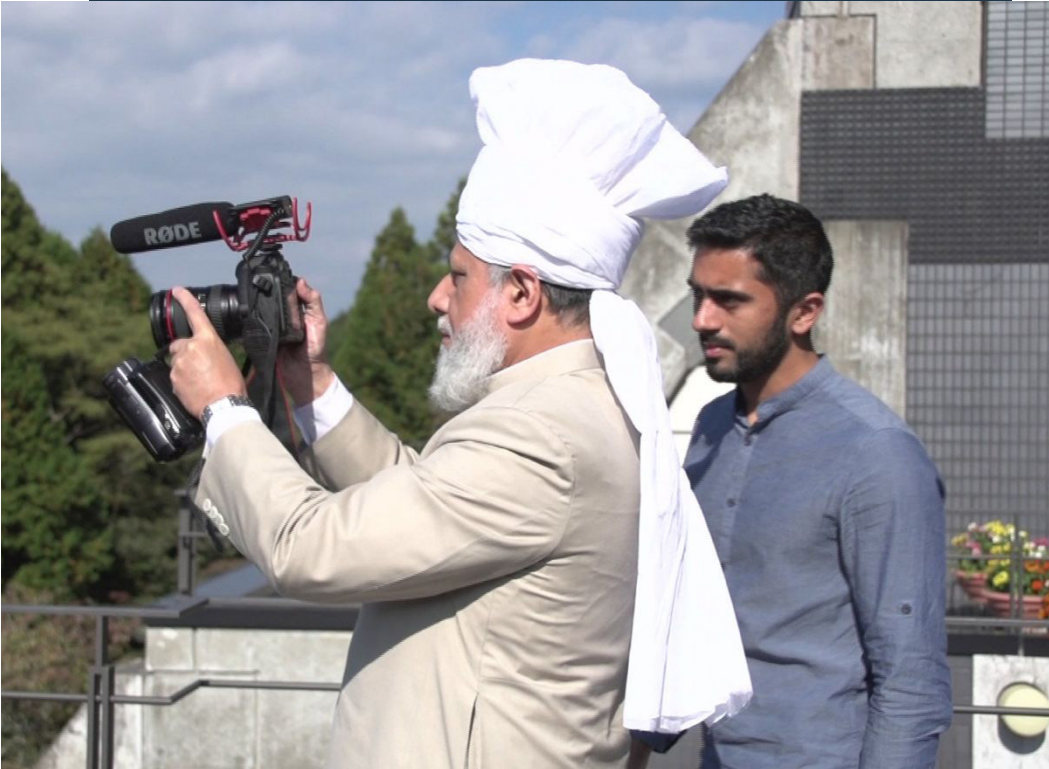
By the Grace of Allah, I have had the fortune of devoting my life, as a Waqf, in MTA and this is truly the greatest honour of my life. Along with the ample blessings of Waqf, one such blessing is the many opportunities to join Huzoor on his international trips. One of my favourites is Huzoor’s trip to Japan in 2013. During this trip, beloved Huzoor (aba) would often have personal moments, which he would film on his personal camera. Once on a drive, we made a stop at a restaurant which had an overlooking view of Mount Fuji from its balcony.
Huzoor (aba) took out his camera to film the beholding view in front of us. I was already on the balcony before Huzoor (aba), but as soon as he came forward, I stood back to not disrupt his space. There at that moment, right in front of me was our beloved Khalifa filming and capturing the Mount Fuji, which to this day, is the most unreal shot I had seen. Of course I took this opportunity to capture this once in a lifetime view. As soon as Huzoor (aba) started to film, he realized that due to the hazy weather, Mount Fuji was not visible on his camera. To which, in my fortune, Huzoor asked me what I can see in my camera, which he could not see in his. He then took my camera in his blessed hands, as I tried to adjust the settings of my camera for Huzoor (aba) to enable a better view of Mount Fuji though the lens. To my great luck, there are some unbelievable shots capturing that moment.
There are many moments I’ve witnessed through a lens both with our beloved Imam and without, and I hope many more will come Insha’Allah. There has not been a time when I have not enjoyed
holding the camera. As I gain more experience, I come to the conclusion that things do become simpler as you get older. The simplest of cameras, with the simplest of views, become more meaningful, than maybe a click of the great, tall buildings in the world. Photography and pictures are my way of expressing myself, but also to understand the world and its history.

Mount Fuji is an active stratovolcano located on the Japanese island of Honshu, with a summit elevation of 3,776.24 m (12,389 ft 3 in). It is the tallest mountain in Japan The mountain is located
about 100 km (62 mi) southwest of Tokyo and is visible from the Japanese capital on clear days. Mount Fuji’s exceptionally symmetrical cone, which is covered in snow for about five months of
the year, is commonly used as a cultural icon of Japan and is frequently depicted in art and photography, as well as visited by sightseers, hikers and mountain climbers.
Video highlights of Huzoor (aba) tour in Japan can be found below:
Articles
Hazrat Khalifatul-Masih V Inaugurates Islamabad Convenience Store
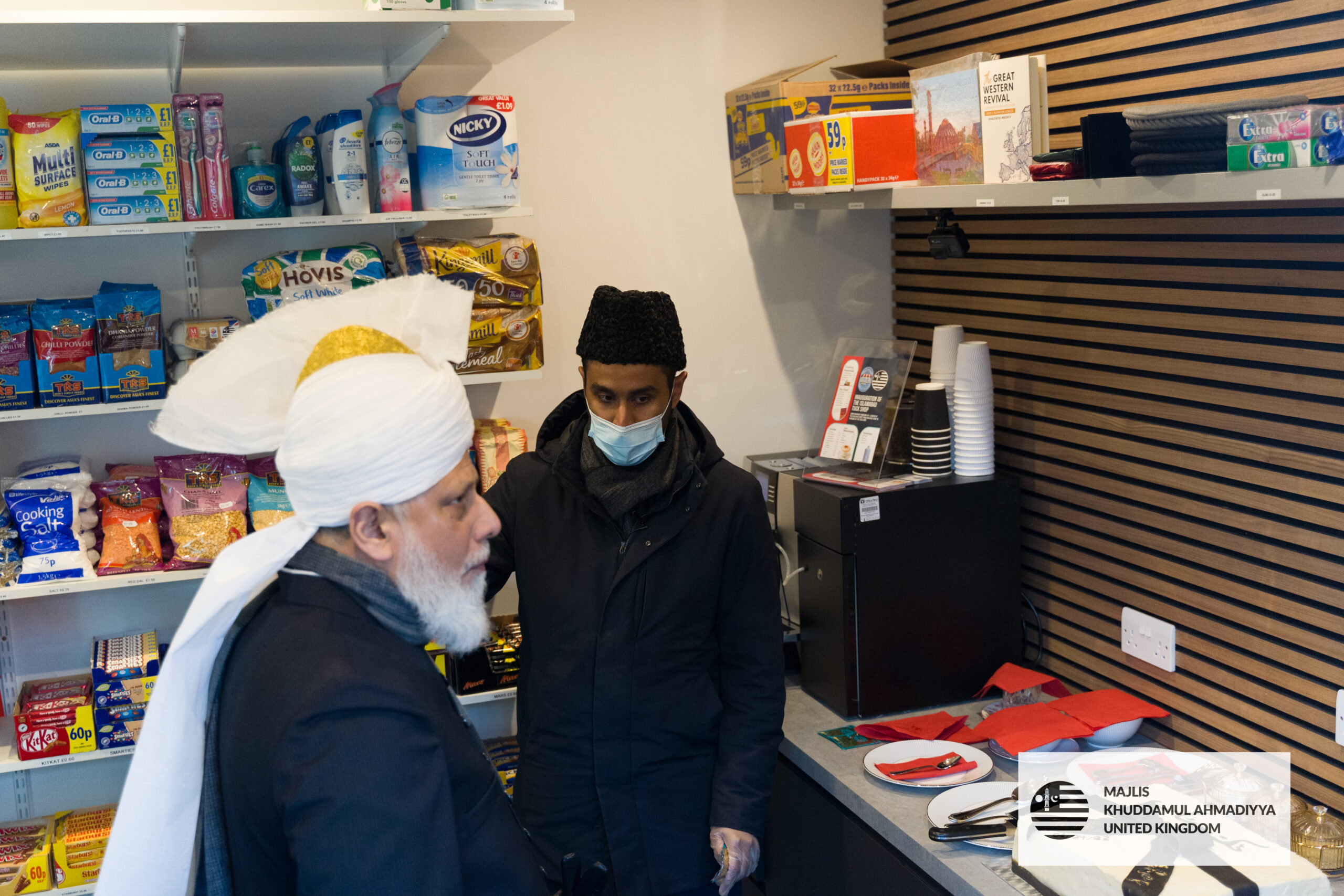
On the 1st of April 2022, after Asr Namaz, Hazrat Khalifatul-Masih V (aba) inaugurated the MKA Tuck Shop in Islamabad. Huzoor (aba) opened the Homeopathic Dispensary adjacent to the Tuck Shop before gracing the Khuddam store. Huzoor (aba) unveiled a plaque and led everyone in silent prayer after which Sadr Majlis Khuddamul Ahmadiyya UK, Abdul Quddus Arif, Mohtamim Sanat-o-Tijarat, Umar Hassan, and Motamid Khuddamul Ahmadiyya UK, Nassar Bhatti, had the opportunity to show Huzoor (aba) the store and its wares.
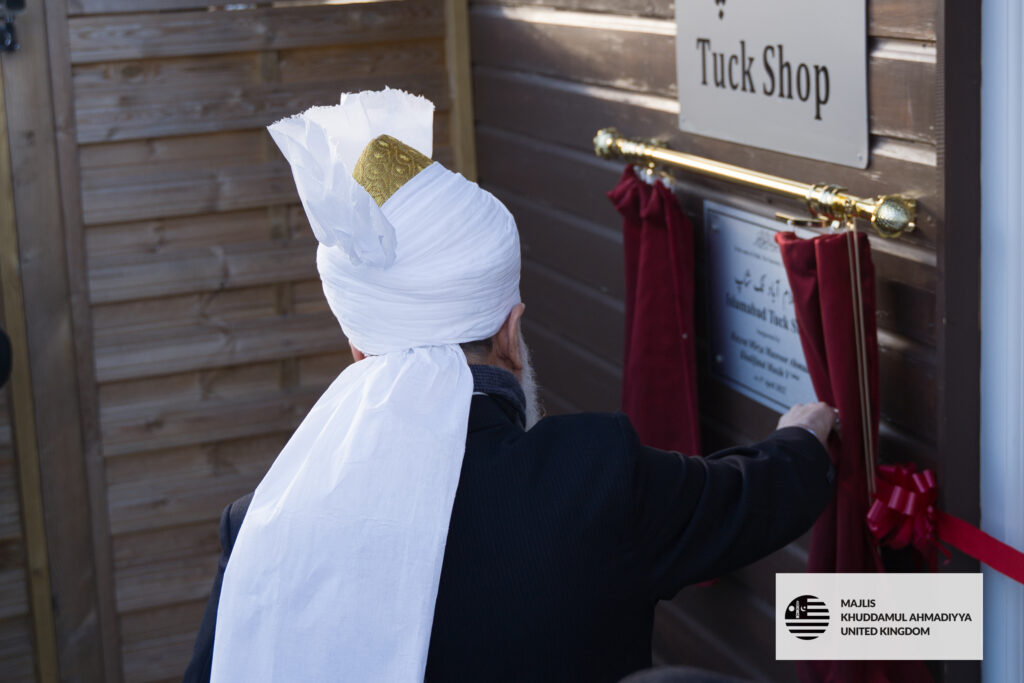
Hazrat Khalifatul-Masih V (aba) unveils the plaque outside the Convenience Store.
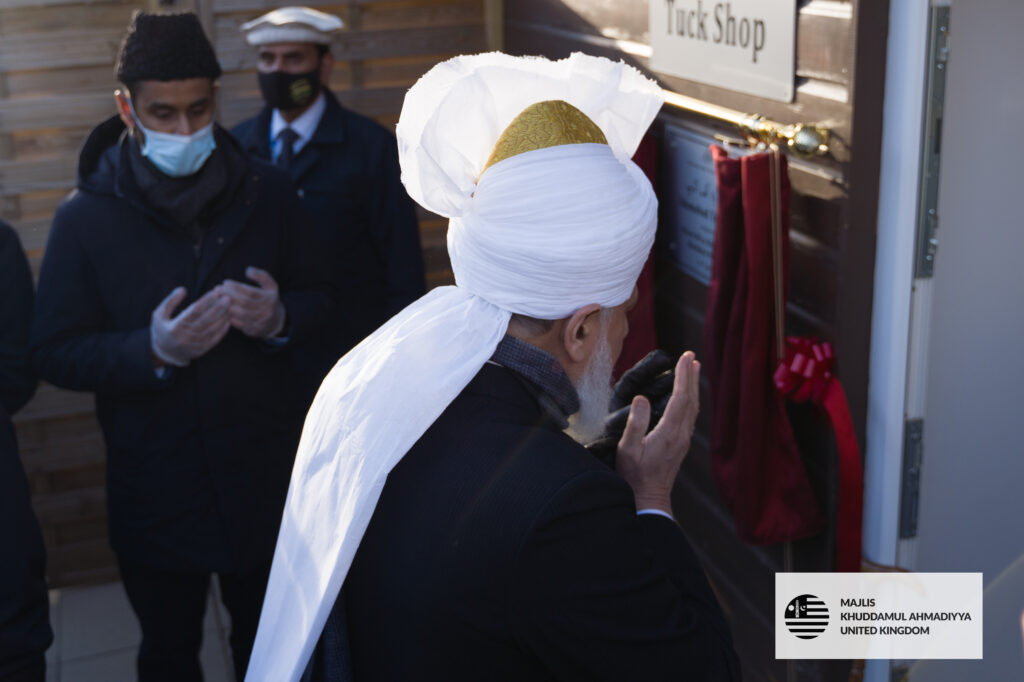
Huzoor (aba) leading Silent Prayer after opening the Store.
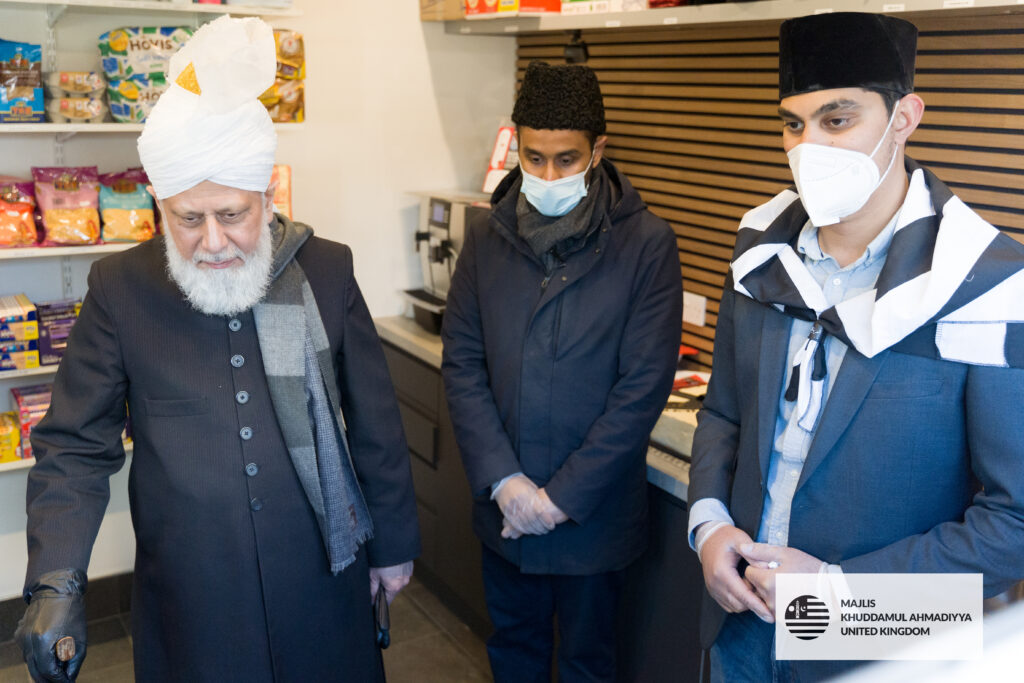
Sadr Sahib MKA UK and Mohtamim Sanat-o-Tijarat have the blessed opportunity to present the Store to Huzoor (aba).
Huzoor (aba) graced Khuddam with his precious time and distributed sweets to children who had gathered outside.
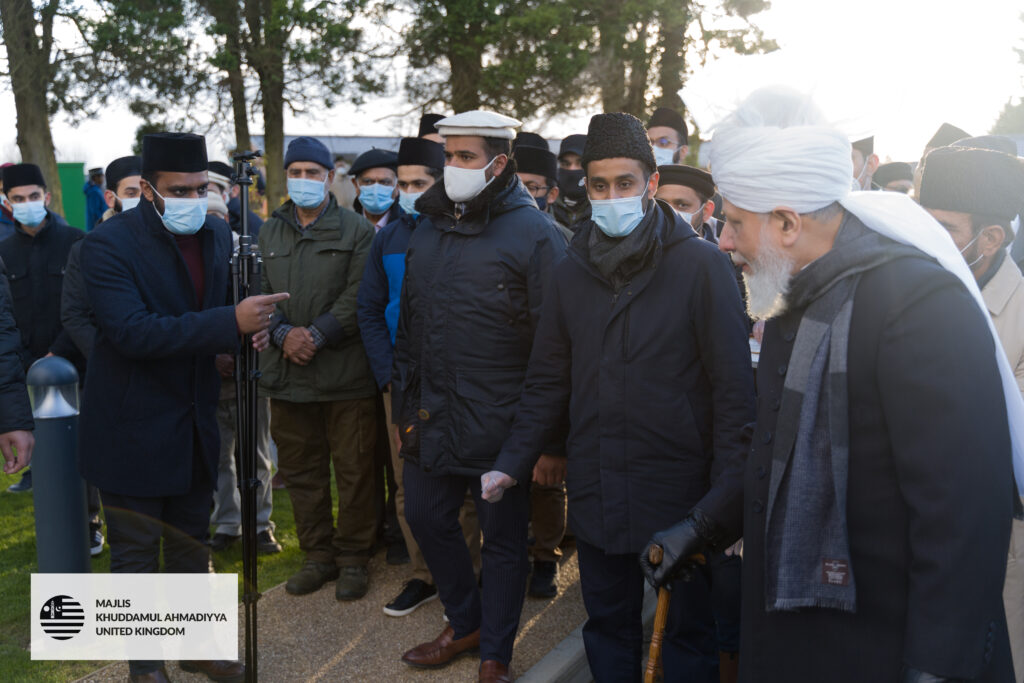
Hazrat Khalifatul-Masih V (aba) graces Naib Mohtamim Isha’at, Mudabbir Din, with his attention.
Immediately after Huzoor (aba) stepped outside the store, Huzoor (aba) was informed by Sadr Sahib about the Khuddam present with Huzoor (aba) speaking to a few as well. All those who had gathered were greatly moved by Huzoor’s presence.
This tuck shop will Insha’Allah serve as a small convenience store for the residents of Islamabad and visitors. The Homeopathy Dispensary has also opened alongside the MKA Tuck Shop.
-
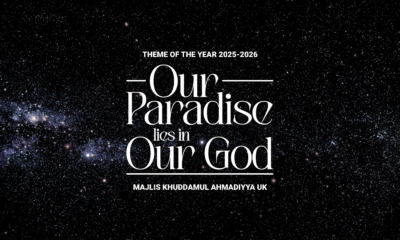
 Ijtema2 months ago
Ijtema2 months agoOur Paradise lies in our God. Understanding the Theme of the Year
-

 News1 month ago
News1 month agoA Fresh Start: Serving God and Community in the New Year
-
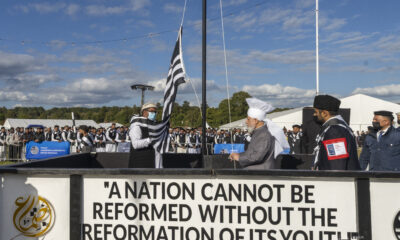
 Ijtema3 months ago
Ijtema3 months agoThe Path to a Spiritual & Moral Transformation
-
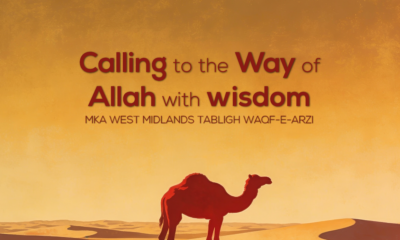
 News2 months ago
News2 months agoCalling to the Way of Allah with wisdom – MKA West Midlands Tabligh Waqf-e-Arzi
-

 Editorial4 weeks ago
Editorial4 weeks agoCondition 2 of Bai‘at
-

 Editorial1 month ago
Editorial1 month agoConditions of Bai’at: Condition 1, abstaining from Shirk
-

 Editorial3 weeks ago
Editorial3 weeks agoCondition 3 of Bai‘at: Offering Prayers & Durood
-
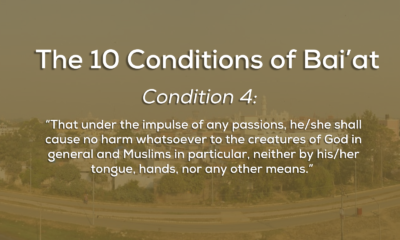
 Editorial15 mins ago
Editorial15 mins agoConditions of Bai’at: Condition 4, cause no harm
